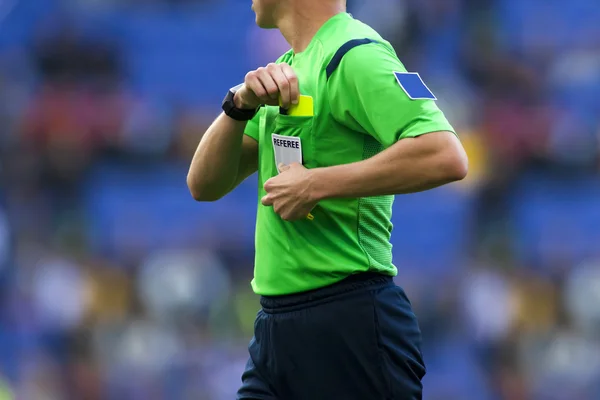
Where do the issues lie in refereeing football and who has been affected?
BBC Radio 5 Live conducted a survey in 2023 regarding referee abuse at grassroots level. Out of the 900 who completed the survey, 293 reported back that they had been physically abused by spectators and nearly every response said they had received verbal abuse.
The problems that face the grassroots referee, the constant uncertainty whether or not a player or spectator may react to a decision with violence, is not something that should be taken lightly and leads you to question the state of the protection for officials at grassroots level.
Whilst a Premier League player may not react with the violence that a plumber playing on a Sunday may use, the Premier League fan can certainly respond with abuse.
An alarming story came about overseas when Roma fans attacked the English referee Anthony Taylor in the airport with his family, after his controversial decisions in the Europa League final.
The often inability for fans to see the human side of a referee; who has family, who is prone to make mistakes in his work just like any other person would in their job, is what incites fans to impulsively take to Twitter to abuse a referee, or in some cases go and physically hurt the referee.
Who is Jon Moss?
Jon Moss, 53, is a former professional referee who officiated mainly in the Premier League.
Working his way through the ranks of the counties’ leagues, and the EFL, Moss refereed his first Premier League game by 2010.
After an illustrious career that involved cup finals and Play-Off finals, Moss stepped down from the role in 2022 to a more behind the scenes role at the PGMOL, until his departure earlier this year.
Unfortunately, Moss’ last game in charge was tarnished by the controversy surrounding his decisions in the Championship Play-Off final.
When he didn’t award respective penalties to Huddersfield, after Harry Toffolo and Lewis O’Brien had been brought down in the box.
When Moss was subjected to death threats and his other business was affected, the PGMOL and the EFL were there to provide some security to Moss and his family.
Who are the PGMOL and how are they helping to protect referees?
The PGMOL, standing for ‘Professional Game Match Officials Limited’, were formed in 2001 to improve the refereeing standards in English football. The Premier League, the English Football League and the FA all combine to fund the association.
The PGMOL involves the training and education of 512 match officials and the 20 ‘Select Group One’ referees are considered the most high profile referees, operating on football’s bigger stages.
PGMOL are geared up for the pressures that comes with being involved in elite sport. Just as football clubs employ a variety of experts to enhance player performance, the same mechanisms exist for ensuring referees perform to these high standards.
A crucial aspect of protecting the referee is through the sports psychologists that the PGMOL employ.
Jon Moss, says they are there to help you “park decisions”, allowing previous games to be left in the past and not to affect you mentally for the next game.
Whilst the mental challenges a referee may face when he sees his name circulating online can be difficult to avoid, it is of some value that in their own association they are receiving the right kind of mental protection.
Has referee abuse always been present in our game?
Former top flight referee Keith Hackett, 79, suggests that the working class foundations that football was built upon and the tribalism that exists in the game means that referee abuse is a cultural issue. It has existed in the game since its birth.
Whilst the 70s and 80s that Hackett refereed in may have been a greater physical battle on the pitch, the abuse now has transcended into social media, which has really become the centre of the epidemic that is referee abuse.
Who can help you?
If you are refereeing at a grassroots level, whether this be for juniors or open age, you will be no stranger to a player or a parent giving you an earful.
What can often be shrugged off as being ‘part and parcel of the game’, is undermining the real repercussions of referee abuse.
Over the last 10 seasons, the FA has lost an average of 7,000 referees per season, with many of these being due to the abuse they are facing every weekend.
The Third Team is an organisation that is on a path to putting a stop to the abuse, ensuring referees enjoy their job more and most importantly improve their mental health. This can be achieved through their online courses, workshops and keynote speaking.
Don’t let the abuse stop you doing what you love. Read more here – https://thethirdteam.co.uk/
